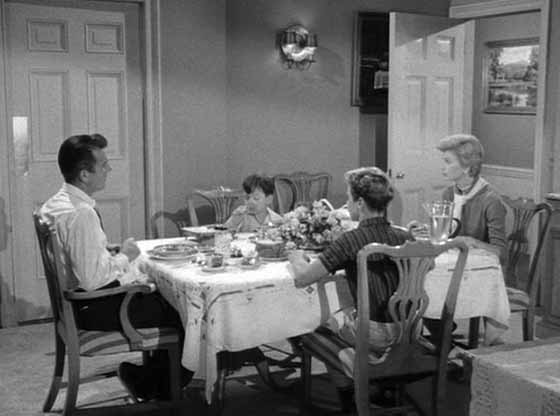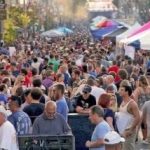This Thanksgiving, We’re Serving Conflict
Tension at a family meal isn’t new for LGBTQ people. Now we all may face it.
Thanksgiving is a time for bringing people together, sharing long-time traditions and making family memories. For generations, it’s been a time for togetherness.
But right now, many just aren’t feeling all that together. As families sit down for Thanksgiving 2016, just two weeks after Election Day, there are deeper divisions across the dinner table than any time in recent history.
This isn’t about what party or candidate won. This isn’t as simple as “we won, you lost, get over it.” This is about fault lines growing deeper, wider, and more painful every day.
For many, this is about suddenly feeling unwelcome at the table. Its about looking around the table and wondering which of your family members voted against your future in favor of their own. It’s about people panicked because they’ve lost a sense of progress — but even more panicked that maybe, just maybe, that progress was never real in the first place.
There’s a pervasive sense of loss in the air. We’ve just lived through two weeks in which hate, not holiday cheer, seems to be spreading like a cancer. Over 700 hate crimes have been reported since Election Day. We’ve gone way beyond being offended by “happy holidays” instead of “merry Christmas.” We’re entering the holiday season with swastikas popping up like Christmas wreaths.
LGBTQ people are no stranger to holiday anxiety and apprehension. Not that long ago, going home for the holidays would have been unthinkable. Coming out came with serious social consequences. You weren’t just off the Thanksgiving guest list; you might never see or spend time with your family members again.
Those who did have the option of going home for the holidays spent most of their time uncomfortable, while trying to make everyone around them comfortable. They couldn’t talk about their real lives. Couldn’t share their real thoughts. And certainly couldn’t bring their significant other, no matter how many years they’d been together, and no matter how open their “secret” was within the family.
LGBTQ people have always been incredibly resilient and resourceful. Faced with being frozen out by their families, many gay men and lesbian women refused to compromise who and what they were. They rejected the very idea of being rejected and formed their own family units, holiday traditions, and community organizations instead.
In life, you have the family you’re born into, and then the family you choose. Armistead Maupin, author of the Tales of the City series, speaks often of the “logical” family that men of his generation chose when their biological families rejected them.
Sometimes, those logical families were found in unexpected places. Generous Milwaukee bar owners, including Jim Dorn of Your Place, Rick Kowal of Ball Game, Roger Emerson and Sally Szewczyk of the Beer Garden, Angelo and Bettie Aiello of the Mint Bar, and Bob Schmidt of the M&M Club, hosted special Thanksgiving meals for anyone who had nowhere else to go. There was no shame, no embarrassment, no questions asked. There was simply a sense of acceptance and togetherness that helped many banish their holiday despair and restored their hope for the future.In 1979, one logical family came together to host the first annual Holiday Invitational Tournament (HIT) over Thanksgiving weekend in Milwaukee. They sought to create a meaningful, memorable and welcoming event for people who might not have anywhere else to go for Thanksgiving.
“Family rejection was prevalent at the time. You have to understand that we were considered psychiatric illnesses until 1975,” says Carole Pecor, one of HIT’s founders. “Having a place to go, to talk openly, and not have to keep your mouth shut on Thanksgiving? People said, this is too good to be true!”
Although the first year was small and locally attended, HIT quickly became the nation’s first national gay bowling tournament in 1980. HIT eventually inspired over 30 national gay bowling events and raised tens of thousands of dollars for community causes. The tournament welcomed hundreds of visitors each year, from as far away as Australia, and fostered the creation of the International Gay Bowling Organization.
As Pecor recalls it, “people came together in a really big way at HIT. It meant so much, to so many, for so long.”
HIT, the “Grand Daddy of Bowling Tournaments,” is now one of the longest-running LGBTQ sports organizations in Wisconsin. But, in recent years, attendance has been on the decline. Once a much-needed refuge, the tournament now faces competition from an unexpected and ironic source: those traditional Thanksgiving dinners that didn’t used to be an option for HIT’s bowlers.
And so it seemed the world had changed. That everyone was now welcome to a seat at the holiday table.
And then came the 2016 presidential election.
We’ve learned that we still have a long way to go. That our seat at the table is not and never was guaranteed. That while we may have been tolerated, we were never totally accepted.
And we’ve learned who our real friends are. Many people deleted long-time connections, even family members on social media – if they hadn’t already been deleted themselves. Some replaced their profile and cover photos with pitch-black imagery. Others totally stepped away from their social media accounts and have yet to log back in. By silencing our social voices and erasing ourselves from our social networks, we thought we would leave a black hole behind where we used to be in their lives. Along the way, we might have confused armchair activism for the real thing.
As I see it, we all have three choices, not just for Thanksgiving dinner, but the long road ahead. We all know we’re in for a fight – no matter who we voted for. You can refuse to participate. You can participate, but keep quiet about who you really are. Or you can actively participate and be brutally, painfully, authentically honest every chance you get.
Like many Americans, I know I have much to be thankful for this Thanksgiving. I’m celebrating my six-month wedding anniversary on that day. I have a supportive and inclusive family that I actually look forward to spending time with. And I have the privilege of having a voice and visibility that can be used to make a difference for those in much greater need than myself.
These are all things I’m prepared to fight for.
I believe this is a time for courageous conversations, not awkward silence. If your family means anything to you, don’t flinch in the face of confrontation this Thanksgiving. Seize your chance to say what needs to be said. Explain what the real risks and costs of the future could be, not just for you, but for them. Separate the hard facts from the loose fictions. Seek to be understood, not just to understand.
Brace yourself. This is a debate you might not win. But in the end, both sides of the debate need to seated at the same table.
Out Look
-
The Enduring Legacy of Eldon Murray
 Aug 1st, 2019 by Michail Takach
Aug 1st, 2019 by Michail Takach
-
The Flag Stands for LGBTQ People, Too
 Jul 4th, 2019 by Michail Takach
Jul 4th, 2019 by Michail Takach
-
The Battle for Juneau Park
 Apr 14th, 2017 by Michail Takach
Apr 14th, 2017 by Michail Takach



![Mint Bar [r]. Image courtesy of Milwaukee Pride, Inc.](https://urbanmilwaukee.com/wp-content/uploads/2016/08/017jj-590x422.jpg)




















I’ve had a bunch of debates I felt I have not won lately, after the election. Yes, it’s frustrating, demeaning and scary……
But, you’re right: we have those three choices. Yet, those of us who came of age at the time where we saw clear and consistent activism brought us the changes and acceptance we shouldn’t have had to fight for in the first place — for us, we know we just have that one choice.
We’ll fight, we’ll speak up, we’ll take our lumps — and we’ll look to others who are doing the same when we need support when doing it all feels too hard…….